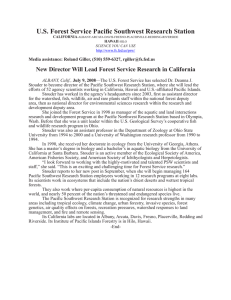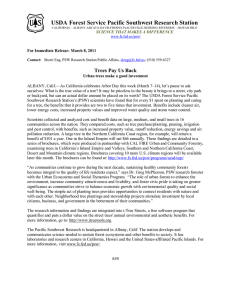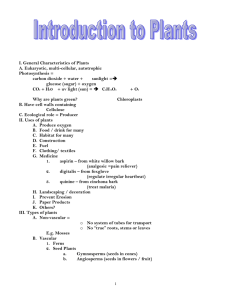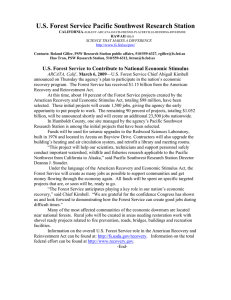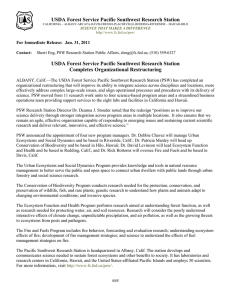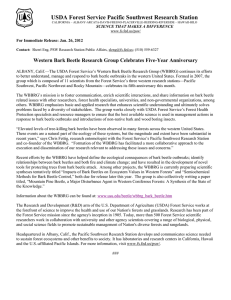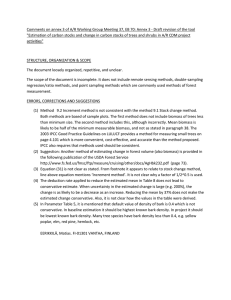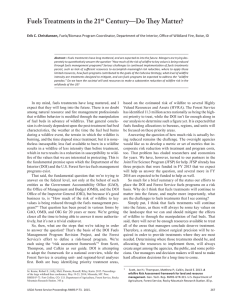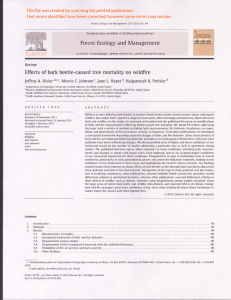USDA Forest Service Pacific Southwest Research Station
advertisement
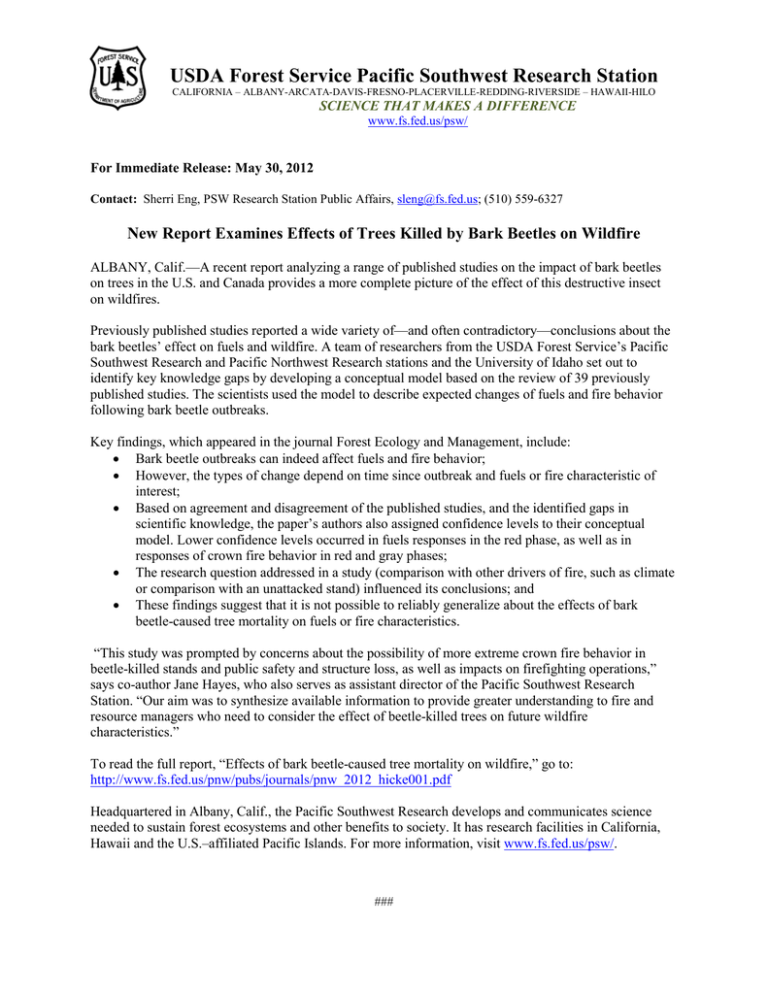
USDA Forest Service Pacific Southwest Research Station CALIFORNIA – ALBANY-ARCATA-DAVIS-FRESNO-PLACERVILLE-REDDING-RIVERSIDE – HAWAII-HILO SCIENCE THAT MAKES A DIFFERENCE www.fs.fed.us/psw/ For Immediate Release: May 30, 2012 Contact: Sherri Eng, PSW Research Station Public Affairs, sleng@fs.fed.us; (510) 559-6327 New Report Examines Effects of Trees Killed by Bark Beetles on Wildfire ALBANY, Calif.—A recent report analyzing a range of published studies on the impact of bark beetles on trees in the U.S. and Canada provides a more complete picture of the effect of this destructive insect on wildfires. Previously published studies reported a wide variety of—and often contradictory—conclusions about the bark beetles’ effect on fuels and wildfire. A team of researchers from the USDA Forest Service’s Pacific Southwest Research and Pacific Northwest Research stations and the University of Idaho set out to identify key knowledge gaps by developing a conceptual model based on the review of 39 previously published studies. The scientists used the model to describe expected changes of fuels and fire behavior following bark beetle outbreaks. Key findings, which appeared in the journal Forest Ecology and Management, include: • Bark beetle outbreaks can indeed affect fuels and fire behavior; • However, the types of change depend on time since outbreak and fuels or fire characteristic of interest; • Based on agreement and disagreement of the published studies, and the identified gaps in scientific knowledge, the paper’s authors also assigned confidence levels to their conceptual model. Lower confidence levels occurred in fuels responses in the red phase, as well as in responses of crown fire behavior in red and gray phases; • The research question addressed in a study (comparison with other drivers of fire, such as climate or comparison with an unattacked stand) influenced its conclusions; and • These findings suggest that it is not possible to reliably generalize about the effects of bark beetle-caused tree mortality on fuels or fire characteristics. “This study was prompted by concerns about the possibility of more extreme crown fire behavior in beetle-killed stands and public safety and structure loss, as well as impacts on firefighting operations,” says co-author Jane Hayes, who also serves as assistant director of the Pacific Southwest Research Station. “Our aim was to synthesize available information to provide greater understanding to fire and resource managers who need to consider the effect of beetle-killed trees on future wildfire characteristics.” To read the full report, “Effects of bark beetle-caused tree mortality on wildfire,” go to: http://www.fs.fed.us/pnw/pubs/journals/pnw_2012_hicke001.pdf Headquartered in Albany, Calif., the Pacific Southwest Research develops and communicates science needed to sustain forest ecosystems and other benefits to society. It has research facilities in California, Hawaii and the U.S.–affiliated Pacific Islands. For more information, visit www.fs.fed.us/psw/. ###
